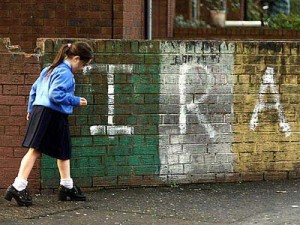Funny that Microsoft puts a red squiggly line under whatabouts, which is actually a real word — at least according to the Oxford English Dictionary. Meaning “one’s activities, what one is about”, it’s admittedly rare; it dates from the mid-19th century when it was coined as a take on the more understandable whereabouts, which is in frequent usage to this day. In the same way that whereabouts has a certain useful vagueness about it — emphasizing the approximation of whoever’s location is at issue, rather than pinpointing it with any sort of precision, there’s a certain muddiness about whatabouts that makes it especially useful and synonymless: someone’s whatabouts are certainly more poetic than their activities, what they do for a living, or “what they’re about” (in itself a peculiarly British expression).
Whataboutery doesn’t get an OED entry, but it’s another fabulously useful word that — like its cousin whatabouts — has no real synonym, and carries such heft in its meaning. According to Wiktionary, it means “protesting at hypocrisy; responding to criticism by accusing one’s opponent of similar or worse faults”. Even though this word evolved as a response to commentary on and discussions about the Troubles in Northern Ireland, and that’s where most citations will be found, it continues to be used — although infrequently — to describe the nature of a certain type of argument. Ben S. Cohen wrote in the Huffington Post in 2010 about the ubiquity of whataboutery in political discourse, describing it as “a fairly transparent argumentative technique, designed to derail debate of one issue by raising another”. But how did this curious word find its way into our vocabulary?
World Wide Words explains: “It’s associated particularly with the Troubles in Northern Ireland. Bitter arguments by one side about terrorism were often countered, not by reasoned argument, but by accusations of similar atrocities by the other. In 2000, The Scotsman attributed the coinage to the former West Belfast MP Gerry Fitt, and gave this example: “Aye, the IRA might be bad, but what about …”. That makes clear it’s what about turned into a noun. The Belfast Telegraph used it on 29 September: “Both sides are steeped in historical ‘whataboutery’ and they cannot see the historical woods for the modern trees.”

